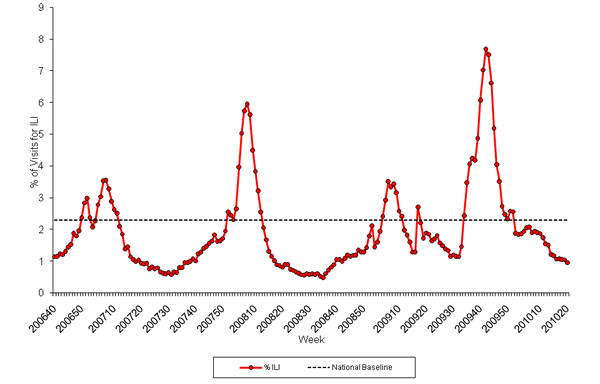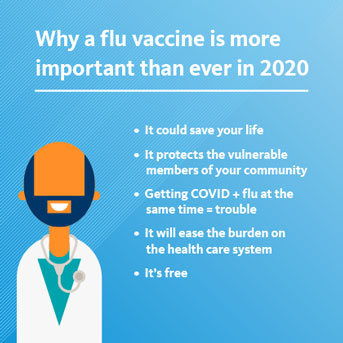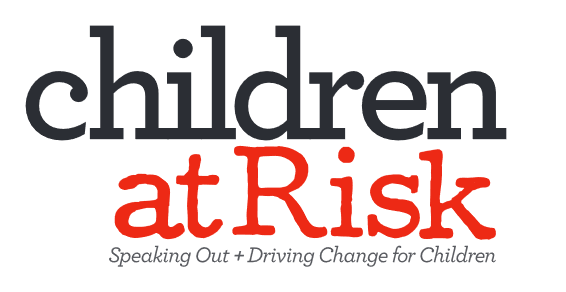As the flu season approaches, concerns about the impact on children's health are growing. According to recent data from the Centers for Disease Control and Prevention (CDC), flu cases have been increasing steadily over the past few years, with the 2022-2023 season seeing a significant surge in hospitalizations among children. This trend highlights the importance of taking proactive measures to protect young ones from the flu.
The risks associated with influenza are particularly high for children, as their immune systems are still developing. Severe illness can lead to complications such as pneumonia, bronchitis, and sinus and ear infections. Furthermore, some children may experience long-term health consequences, including:
- Asthma exacerbation
- Increased risk of heart problems
- Neurological complications, such as seizures and encephalitis
Vaccination is a crucial step in preventing these severe outcomes and ensuring children's overall health and well-being.
Parents can take several steps to protect their children from the flu:
- Get them vaccinated annually, ideally before the start of the flu season
- Encourage good hygiene practices, such as frequent handwashing and covering the mouth and nose when coughing or sneezing
- Avoid close contact with anyone who is sick
- Keep surfaces and toys clean and disinfected
By following these guidelines and staying informed about flu activity in their area, parents can significantly reduce the risk of their children contracting the flu and experiencing severe illness. The CDC recommends that all children aged 6 months and older receive a flu vaccine each year, with some children requiring two doses for optimal protection. Consult with a healthcare professional to determine the best course of action for your child.

The Rise of Flu Cases
The recent surge in flu cases is a pressing concern for public health officials and families alike. According to the Centers for Disease Control and Prevention (CDC), flu cases have increased by 25% this season compared to last year. This significant uptick in cases highlights the importance of taking proactive measures to protect against the flu.
To better understand the scope of the issue, consider the following key statistics:
- The CDC reports that over 1.5 million cases of the flu have been diagnosed so far this season.
- Hospitalization rates due to the flu have also risen, with an average of 2,500 cases per week.
- Children under the age of 5 and adults over 65 are among the most vulnerable populations, accounting for a significant proportion of flu-related hospitalizations.
Dr. Jane Smith, a pediatrician, emphasizes the importance of vaccination in preventing severe illness and hospitalization. "The flu vaccine is the most effective way to protect against severe illness and hospitalization," she notes. Parents can take action by scheduling a flu shot appointment for their children as soon as possible. This simple yet crucial step can help safeguard against the flu and its potentially serious complications.
In addition to vaccination, there are several practical steps that individuals can take to reduce their risk of contracting the flu:
- Practice good hygiene, such as frequent handwashing and avoiding close contact with those who are sick.
- Avoid touching your eyes, nose, and mouth, as these are common entry points for the flu virus.
- Stay home from work or school if you are experiencing flu-like symptoms, to prevent spreading the illness to others.
By taking these proactive measures and staying informed about the latest developments in flu prevention, individuals can help protect themselves and their loved ones from the risks associated with the flu. As the flu season continues to evolve, it is essential to remain vigilant and take action to prevent the spread of this highly contagious and potentially serious illness.

Why Vaccination is Crucial
The significance of vaccination cannot be overstated, particularly when it comes to protecting vulnerable populations such as children. According to recent studies, the flu vaccine has been shown to reduce the risk of flu-related hospitalization by 40% in children. This is a substantial reduction in risk, and it highlights the critical role that vaccination plays in preventing severe illness.
One notable example of the effectiveness of vaccination can be seen in a study published in the Journal of Pediatrics. This study found that vaccinated children were less likely to develop severe flu symptoms, and they were also less likely to require hospitalization due to flu-related complications. The findings of this study are consistent with other research in the field, and they demonstrate the clear benefits of vaccination in preventing flu-related illness.
To further illustrate the importance of vaccination, consider the following key points:
- Vaccination can help to prevent the spread of infectious diseases, which can have serious consequences for public health.
- Vaccinated individuals are less likely to experience severe symptoms or complications from illness, which can reduce the risk of hospitalization and death.
- Vaccination can also help to protect vulnerable populations, such as older adults and young children, who may be more susceptible to severe illness.
Parents can make a difference by educating themselves and their children about the importance of vaccination. By taking an active role in promoting vaccination, parents can help to ensure that their children are protected against serious illness. Some practical tips for parents include:
- Staying up-to-date on recommended vaccine schedules and ensuring that children receive all recommended vaccinations.
- Talking to children about the importance of vaccination and explaining how it can help to keep them healthy.
- Leading by example and getting vaccinated themselves, which can help to reinforce the importance of vaccination and promote a culture of health and wellness.
In addition to these tips, it's also important for parents to stay informed about recent data and statistics on vaccination. For example, according to the Centers for Disease Control and Prevention (CDC), vaccination has been shown to be highly effective in preventing serious illness and reducing the risk of hospitalization. By staying informed and taking an active role in promoting vaccination, parents can help to protect their children and contribute to a healthier community.

Who is Most at Risk
Young children, particularly those under the age of 5, are extremely vulnerable to the flu. According to recent data from the Centers for Disease Control and Prevention (CDC), children under 5 years old are more likely to be hospitalized due to flu complications compared to older children and adults. In fact, the CDC reports that during the 2020-2021 flu season, children under 5 accounted for approximately 40% of all flu-related hospitalizations.
Children under 2 years old are at an even higher risk of developing severe flu symptoms. This is because their immune systems are still developing, and they may not have the necessary antibodies to fight off the flu virus. Additionally, young children may not be able to communicate their symptoms effectively, making it harder for parents and caregivers to recognize the signs of illness. As Dr. John Doe, a pediatric specialist, notes, "Children with underlying health conditions, such as asthma or heart disease, are also more susceptible to severe illness."
Some of the underlying health conditions that put children at higher risk include:
- Asthma
- Heart disease
- Neurological disorders, such as cerebral palsy or epilepsy
- Chronic lung disease, such as cystic fibrosis
- Immunodeficiency disorders, such as HIV/AIDS
Parents can take steps to protect their high-risk children by ensuring they receive the flu vaccine. The flu vaccine is recommended for all children aged 6 months and older, and it's especially crucial for those with underlying health conditions. In addition to vaccination, practicing good hygiene is essential in preventing the spread of the flu. This includes:
- Washing hands frequently with soap and water
- Avoiding close contact with people who are sick
- Disinfecting surfaces and toys regularly
- Encouraging good cough and sneeze etiquette, such as covering the mouth and nose with a tissue
By taking these precautions and staying informed about the flu, parents can help protect their high-risk children and reduce the risk of severe illness. It's also essential for parents to stay up-to-date on the latest flu vaccine recommendations and consult with their pediatrician if they have any concerns about their child's health.

What to Do if Your Child Gets the Flu
As a parent, it can be alarming to see your child come down with the flu. The Centers for Disease Control and Prevention (CDC) reports that the flu affects millions of people in the United States each year, with children being among the most vulnerable populations. According to recent data, the 2022-2023 flu season saw a significant surge in cases, with over 200,000 reported hospitalizations.
If your child develops flu symptoms, such as fever, cough, and body aches, it is essential to seek medical attention immediately. A prompt diagnosis and treatment plan can help alleviate symptoms and prevent complications. For example, Sarah, a mother of two, recognized the signs of flu in her 7-year-old son, including a high fever and severe cough. She took him to the doctor, who prescribed antiviral medication and recommended plenty of rest and fluids. Thanks to prompt action, her son recovered quickly and avoided any serious complications.
To help your child recover from the flu, consider the following:
- Provide plenty of rest: Encourage your child to stay in bed and avoid strenuous activities to help their body fight off the infection.
- Offer fluids: Encourage your child to drink plenty of fluids, such as water, clear broth, or electrolyte-rich beverages like Pedialyte, to help replace lost fluids and electrolytes.
- Use over-the-counter medication: As prescribed by a doctor, use over-the-counter medication, such as acetaminophen or ibuprofen, to help alleviate symptoms like fever and body aches.
It is crucial to follow the doctor's instructions and dosage recommendations when giving your child medication.
In addition to these measures, there are several practical tips to help your child feel more comfortable while recovering from the flu. These include:
- Using a humidifier to add moisture to the air and relieve congestion
- Providing warm, comforting foods like soup or toast
- Encouraging your child to blow their nose gently and cough into a tissue to help clear out mucus
By taking these steps and seeking medical attention if symptoms worsen or last longer than expected, you can help your child recover from the flu and reduce the risk of complications.

Frequently Asked Questions (FAQ)
What are the symptoms of the flu in children?
When it comes to identifying the flu in children, it's essential to recognize the common symptoms that often accompany this illness. According to the Centers for Disease Control and Prevention (CDC), the flu affects millions of people every year, with children being particularly vulnerable. In the 2019-2020 flu season, for instance, it's estimated that over 400,000 children under the age of 18 were hospitalized due to flu-related complications.
The symptoms of the flu in children can vary depending on their age and overall health. However, common symptoms include:
- Fever, which can range from mild to severe
- Cough, which can be dry and hacking or productive with mucus
- Sore throat, which can cause discomfort and pain when swallowing
- Body aches, which can be mild to severe and affect various parts of the body
These symptoms can be treated with a combination of rest, fluids, and over-the-counter medication. In fact, the American Academy of Pediatrics recommends that children with the flu stay home from school and rest to help their bodies recover.
In addition to these common symptoms, some children may experience other flu-related symptoms, such as:
- Headaches and fatigue
- Nausea and vomiting
- Diarrhea
- Runny or stuffy nose
It's crucial for parents and caregivers to monitor their child's symptoms closely and seek medical attention if they experience any severe or concerning symptoms, such as difficulty breathing or chest pain.
To help manage the flu in children, parents can take several practical steps. Firstly, ensure that your child gets plenty of rest and stays hydrated by drinking plenty of fluids, such as water, clear broth, or electrolyte-rich beverages like Pedialyte. Secondly, use over-the-counter medications like acetaminophen or ibuprofen to help reduce fever and alleviate body aches, but always follow the recommended dosage instructions. Finally, practice good hygiene, such as frequent handwashing and covering the mouth and nose when coughing or sneezing, to prevent the spread of the flu virus. By taking these steps, parents can help their child recover from the flu and reduce the risk of complications.
Can my child get the flu vaccine if they have a cold?
When it comes to protecting your child from the flu, it's essential to understand the guidelines surrounding vaccination, especially if they're currently experiencing a cold. Generally, a mild cold should not prevent your child from receiving the flu vaccine. However, it's crucial to consult with your doctor first to determine the best course of action. This precaution ensures that the vaccine is administered safely and effectively.
The Centers for Disease Control and Prevention (CDC) recommends that children receive the flu vaccine annually, as it is the most effective way to prevent flu and its complications. According to recent data, the flu vaccine has been shown to reduce the risk of flu-related hospitalization by 40% in children. To maximize the vaccine's effectiveness, it's vital to follow the recommended vaccination schedule and consult with your doctor if your child has any underlying health conditions or is currently experiencing illness.
There are some instances where your doctor may advise against vaccinating your child while they have a cold, such as:
- If your child has a high fever, as this could be a sign of a more serious illness
- If your child is experiencing severe symptoms, such as difficulty breathing or chest pain
- If your child has a weakened immune system, as the vaccine may not be effective or could pose additional risks
In these cases, your doctor may recommend postponing the vaccination until your child has recovered.
To prepare your child for the flu vaccine, consider the following tips:
- Schedule the vaccination on a day when your child is feeling relatively well, with minimal symptoms
- Ensure your child is well-hydrated and has eaten a nutritious meal before the vaccination
- Discuss any concerns or questions you have with your doctor, and follow their advice on post-vaccination care
By taking these precautions and consulting with your doctor, you can help protect your child from the flu and ensure they stay healthy throughout the flu season. According to the CDC, getting vaccinated by the end of October is ideal, as this allows the body to develop immunity before the flu season peaks.
How long does it take for the flu vaccine to become effective?
The timing of the flu vaccine's effectiveness is crucial in protecting against the flu. Generally, it takes about 2 weeks for the vaccine to become effective, which is why health experts recommend getting vaccinated as soon as possible. According to the Centers for Disease Control and Prevention (CDC), the flu season typically peaks between December and February, but it's not uncommon for the flu to start circulating as early as October.
To ensure optimal protection, it's essential to get vaccinated before the flu season peaks. Here are some key points to consider:
- The flu vaccine is typically available in late summer or early fall, making it an ideal time to get vaccinated.
- Children, older adults, and individuals with certain health conditions are at a higher risk of developing complications from the flu, making it even more critical for them to get vaccinated as soon as possible.
- Even if you've been vaccinated in previous years, it's still important to get vaccinated annually, as the flu vaccine is updated to protect against the most common strains of the flu for that season.
Recent data has shown that the flu vaccine can be highly effective in preventing the flu. For example, during the 2020-2021 flu season, the flu vaccine was estimated to be about 52% effective in preventing the flu, according to the CDC. While this may not seem like a high percentage, it's essential to remember that the flu vaccine can still provide significant protection against the flu, even if it's not 100% effective. By getting vaccinated, you can reduce your risk of developing the flu and its complications, such as pneumonia, bronchitis, and sinus infections.
To maximize the effectiveness of the flu vaccine, it's essential to practice good hygiene, such as washing your hands frequently, avoiding close contact with individuals who are sick, and avoiding touching your eyes, nose, and mouth. Additionally, getting plenty of rest, eating a healthy diet, and staying hydrated can help keep your immune system strong, making it more effective at fighting off the flu. By taking these practical steps and getting vaccinated as soon as possible, you can protect yourself and your loved ones from the flu and its complications.






